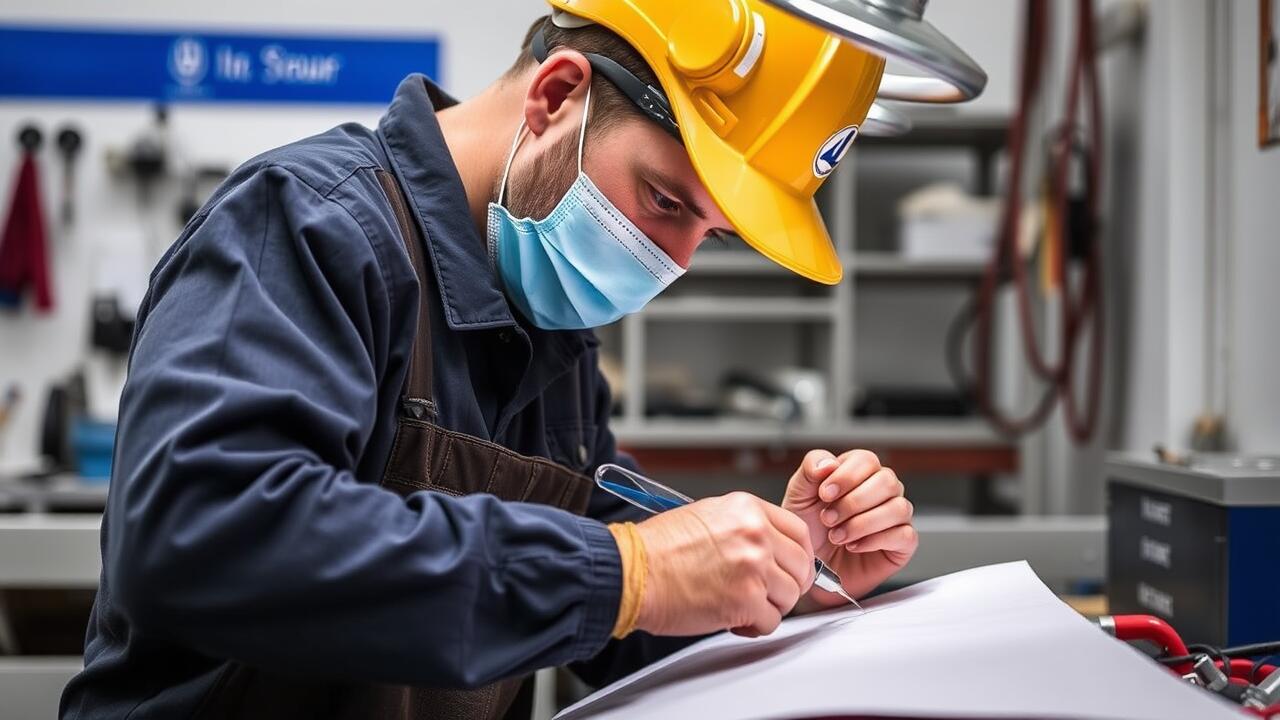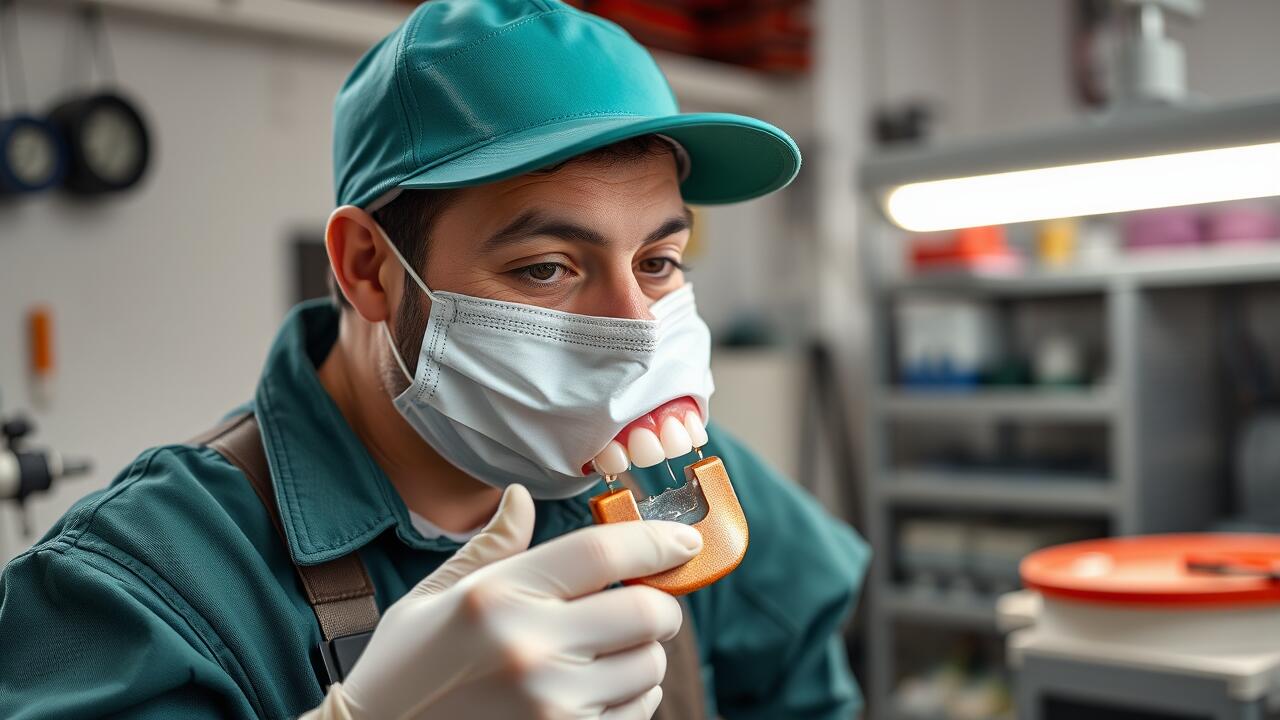
Technology and Techniques Used in Veneer Procedures
Advancements in dental technology have significantly transformed the way veneers are applied. Modern clinics employ digital imaging and 3D printing to create highly precise models of patients' teeth. This technology enables dentists to design custom veneers that fit seamlessly, ensuring both aesthetics and functionality. The use of CAD/CAM (computer-aided design and computer-aided manufacturing) systems allows for the fabrication of veneers on-site, reducing the time patients spend waiting for their dental prosthetics.
The materials used for veneers have also evolved, with options such as porcelain and composite resin becoming increasingly popular. Porcelain veneers are known for their durability and natural appearance, effectively mimicking the translucency of real teeth. Composite veneers offer a more cost-effective solution while still providing excellent results. Dentists in Frenchay often utilise minimally invasive techniques, preserving more of the natural tooth structure and enhancing patient comfort during the procedure.
View this external resource for great tips and advice.
Latest Innovations in Dental Care
The landscape of dental care continues to evolve with remarkable innovations, particularly in the field of cosmetic enhancements like veneers. Advances in dental materials have led to the development of ultra-thin porcelain veneers that provide a natural appearance while minimising the need for tooth reduction. These materials not only enhance aesthetic results but also improve the durability and longevity of the veneers.
Digital technology has also played a significant role in streamlining the veneer application process. CAD/CAM systems allow for precise measurements and customisation, resulting in a more accurate fit and greater patient satisfaction. Additionally, 3D imaging offers dentists the ability to create detailed simulations of treatment outcomes, aiding in clearer communication with patients. These innovations collectively contribute to an improved experience and superior results for those opting for veneers.
Qualifications and Expertise of Dental Professionals
When seeking dental services for veneers, the qualifications and expertise of practitioners are paramount. Dentists who specialise in cosmetic procedures typically undergo additional training beyond their basic dental qualifications. This specialised education often covers aspects of aesthetics, materials science, and advanced placement techniques, equipping them to achieve optimal results for patients. Many clinics employ dentists accredited by professional organisations, reflecting a commitment to maintaining high standards in practice.
Experience plays a crucial role in the quality of veneer placement. Practitioners with a proven track record have usually honed their skills over many years, enabling them to navigate complex cases with greater confidence. Regular attendance at dental conferences and workshops allows these professionals to stay abreast of the latest advancements in veneer technology and application. Patients should consider both the qualifications and practical experience of their dental providers to ensure they receive the best care possible.
Importance of Accredited Practitioners
Accredited practitioners play a crucial role in ensuring that patients receive the highest standard of care when it comes to dental procedures, particularly veneers. These professionals understand the intricacies of cosmetic dentistry and are trained to assess individual cases meticulously. Their qualifications often include specialised training in veneer application techniques and an in-depth understanding of dental aesthetics. This expertise allows them to create a personalised treatment plan that aligns with each patient's unique dental structure and desired outcomes.
Choosing an accredited practitioner not only enhances the quality of the procedure but also significantly reduces potential risks associated with poorly executed veneer placements. Experienced professionals maintain up-to-date knowledge of advancements in dental technology, ensuring that they apply the best and most effective methods. Such practitioners also adhere to industry regulations and ethical guidelines, which translates into a more reliable and trustworthy patient experience. By opting for accredited individuals, patients can rest assured that their veneers will be both functional and visually appealing.
Aftercare and Maintenance for Veneers
Aftercare for veneers is crucial in ensuring their longevity and maintaining their appearance. Regular brushing and flossing are essential to keep the surrounding gum tissues healthy and to prevent plaque accumulation. Patients should also avoid abrasive toothpastes, as these can scratch the surface of the veneers, diminishing their shine. It is advisable to use a soft-bristled toothbrush and a fluoride toothpaste to provide gentle yet effective cleaning.
Regular dental check-ups play an important role in the maintenance of veneers. During these visits, professionals can assess the condition of the veneers and ensure that they remain securely bonded to the teeth. Additionally, patients should be cautious about their dietary choices. Hard foods can chip or fracture veneers, while staining beverages may discolour them over time. By adopting a careful approach to oral hygiene and making informed lifestyle choices, one can help ensure that veneers remain in optimal condition for many years.
Tips for Long-Lasting Results
Maintaining good oral hygiene is essential for ensuring the longevity of veneers. Regular brushing and flossing help prevent plaque buildup, which can discolour the surface and compromise the integrity of the veneers. It is advisable to use a non-abrasive toothpaste and a soft-bristled toothbrush to avoid scratching the veneer surfaces. Additionally, regular visits to the dentist for professional cleanings and check-ups can catch any potential issues early, thereby prolonging their life.
Diet also plays a significant role in the maintenance of veneers. Avoiding overly hard or sticky foods can reduce the risk of chips or dislodgement. Limiting the intake of staining beverages, such as coffee and red wine, can help preserve the natural appearance of veneers. Chewing on ice or using teeth as tools should be avoided altogether to prevent accidental damage. By being mindful of these practices, patients can enjoy the benefits of their veneers for an extended period.
FAQS
What are dental veneers?
Dental veneers are thin shells made from porcelain or composite resin that are custom-fitted to the front surface of teeth to enhance their appearance, covering imperfections such as discolouration, chips, or gaps.
How long do dental veneers last?
With proper care and maintenance, dental veneers can last anywhere from 10 to 15 years, although some may last longer depending on the material used and individual oral hygiene practices.
Are veneers suitable for everyone?
While veneers are a popular cosmetic dental option, they may not be suitable for everyone. Factors such as tooth health, gum condition, and the presence of bruxism (teeth grinding) should be considered. A consultation with a dental professional can help determine suitability.
How do I choose the right dental clinic for veneers in Frenchay?
When selecting a dental clinic for veneers, consider the qualifications and expertise of the dental professionals, the technology and techniques used in procedures, patient reviews, and the aftercare services offered.
What aftercare is required for maintaining veneers?
Aftercare for veneers includes regular brushing and flossing, avoiding hard foods that can chip the veneers, and scheduling routine dental check-ups to ensure their longevity and overall oral health.

